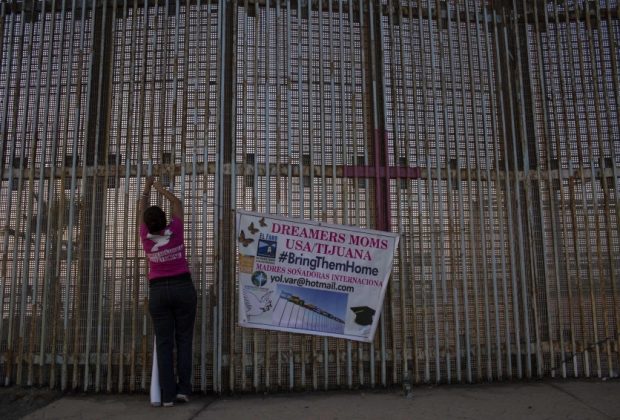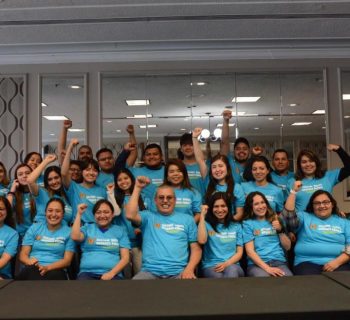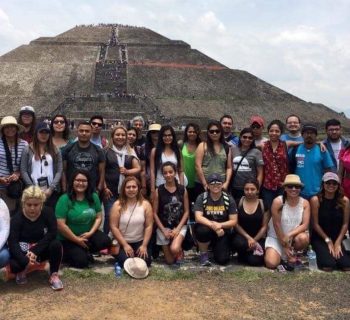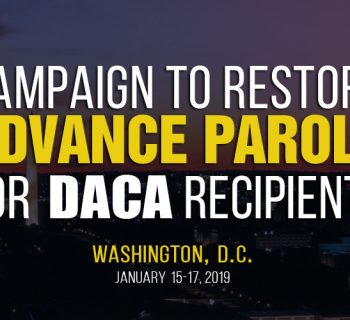SEPTEMBER 14, 2017
If President Trump and Congress cannot come to an agreement to prevent the deportation of hundreds of thousands of undocumented immigrants who came to the United States as children, Mexican universities say they are ready to welcome them as students.
The fate of the Deferred Action for Childhood Arrivals program, or DACA, the Obama-era initiative that allows such people to stay in the United States and work or study, is uncertain. The Trump administration this month announced it would end DACA, but Democratic Congressional leaders said on Wednesday they had struck a deal with the president to extend it.
No matter, Mexican universities say they are prepared to accept an influx of so-called Dreamers, if they are forced to leave the United States.
Indeed, Mexican higher education and the Mexican government have been preparing for months for such a possibility, even as President Trump equivocated about DACA’s fate. Back in March, the Mexican Congress approved changes to federal education law to streamline what had been a complicated and bureaucratic admissions process.
Under the amended law, the process for validating transcripts from foreign institutions has been simplified and a uniform national standard has been set for recognizing academic credits from abroad.
Previously, students who studied abroad had to get a notarized diplomatic seal known as an apostille to go with their transcript, something that could take weeks to secure and could cost hundreds of dollars.
Universities are seeking to fast-track Dreamers’ applications. They will be able to apply for admission to Mexican institutions while still in the United States, said Rodrigo Guerra Botello, secretary general of the Mexican Federation of Private Institutions of Higher Education.
The private-college association, along with other higher-education organizations, is setting up English- and Spanish-language websites for Dreamers. They also are working with Mexican consulates across the United States to provide information about college options.
Historically, Mexican universities have enrolled relatively few students from overseas, Mr. Guerra Botello said, so they are having to start largely from scratch to craft policy and procedures to accommodate these students.
One of the biggest uncertainties, Mr. Guerra Botello said, is just how many students could seek to study in Mexico, if DACA was to be ended.
Over the life of the program, about 800,000 undocumented people have benefited from DACA, and about 690,000 currently have valid permits. Of those, one fifth are in college, and a third are now in high school. Eight in 10 DACA recipients are from Mexico.
English-Language Programs
Mexican universities potentially could experience a "tsunami" of Dreamers, said Fernando León García, president of CETYS University, in Baja California.
CETYS, which is located close to the U.S.-Mexico border and is accredited by the Western Association of Schools and Colleges, an American accreditor, is the rare institution that has experience enrolling American students, taking in a number of graduates each year from San Diego-area high schools.
As a result, the university was already beginning to offer some of its academic programs in English. This fall it started an English-language version of its popular international business major on its Tijuana campus; next year, it plans to have English-language instruction for industrial engineering courses, Mr. León García says.
CETYS and other institutions are also working to put in place other academic supports that Dreamers could need, including extra tutoring. While Dreamers may speak Spanish at home, many have never been in a classroom in which English was not the language of instruction and could struggle to write academic papers in Spanish.
Anáhuac University, which has nine campuses, plans to assign special academic "guardians," or advisers, to Dreamers for at least a year to help them make the transition, said Abelardo Somuano, the university’s chief communications officer.
But dealing with students’ academic issues may be relatively straightforward for Mexican universities, said Mr. León García, compared with the complexity of meeting other needs. Students, who have lived in the United States since childhood, may not have family or friends in Mexico. They could lack a place to stay or a means to pay for tuition and other expenses. Both Anáhuac and CETYS plan to use institutional resources and raise money from outside donors in order to provide financial assistance to Dreamers.
And Mr. Guerra Botello says many students will undoubtedly need counseling and other psychological support to help them deal with the trauma of being forced to leave the country that has long been their home.
Of course, Mr. Trump's vow on Thursday to work with lawmakers on a compromise could mean Dreamers get a reprieve. Nonetheless, Mexican educators say they will move forward with their plans and will be ready to accept students if DACA ends six months from now, as threatened.
As fellow Mexicans, as humans, they say they feel compelled to do what they can to help these young people.
"We should be worrying about building bridges," Mr. León García said, "not building walls."
Source:
Karin Fischer writes about international education, colleges and the economy, and other issues. She’s on Twitter @karinfischer, and her email address is karin.fischer@chronicle.com.







